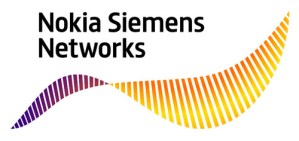
Behind all the cell phones and mobile-enabled gadgets folks use these days are substantial telecommunications networks supporting all those devices…and someone has to make all that infrastructure so consumers can watch YouTube clips of kittens wherever they may be. One of those companies was Motorola…but not anymore. Nokia Siemens, a Finnish-German joint venture, has announced it will be buying Motorola’s cell phone networking gear business for $1.2 billion.
“”This is an exciting acquisition that I believe has significant benefits for customers, employees and our shareholders,” said Nokia Siemens CEO Rajeev Suri, in a statement. “Motorola’s current customers will continue to get world-class support for their installed base and a clear path for transitioning to next generation technologies while employees will join an industry leader with global scale and reach.”
Although the global mobile networking gear business is largely led by Alcatel-Lucent and LM Ericsson, Motorola has been a key supplier to the U.S. mobile operators Verizon Wireless and Sprint, which give Nokia Siemens a solid entry into the U.S. CMDA-based mobile infrastructure market. Motorola also makes a lot of the WiMax gear being deployed by Clearwire and Sprint to offer 4G service, although other major carriers have placed their bets on LTE (Long Term Evolution) technology for 4G service…and Sprint itself might be thinking the same thing.
Under the deal, Motorola will be keeping the iDEN business; it invented the technology, which is currently used by Sprint’s Nextel business and remains a staple of dispatchers and emergency services. Motorola will also keep parts of its mobile gear business focused on public safety, government, and enterprise users.
The deal could give Nokia Siemens some stability moving forward, since the gear deals with more than 50 operators should provide it a sold financial base. The economic downturn has hit Nokia Siemens’ profits in recent years. Under the deal, some 7,500 Motorola employees will be transferred to Nokia Siemens, including development centers in China and India.
